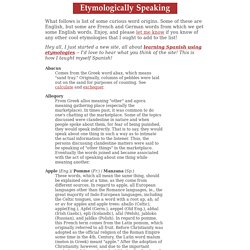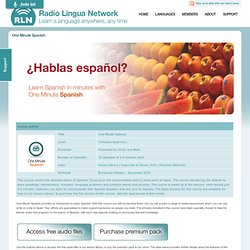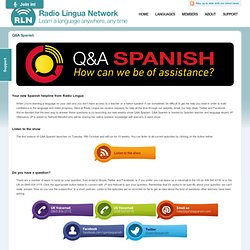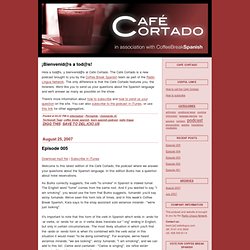

Etymologically Speaking... From the old Arabic word "hashshshin," which meant, "someone who is addicted to hash," that is, marijuana.

Originally refered to a group of warriors who would smoke up before battle. Aaron White adds: You may want to explore the fact that the hashshshins were somewhat of a voodoo-ized grand conspiracy scapegoat cult (the very fact of their existence is impossible to confirm). They supposedly were a secret society (a la the FreeMasons) which was influential in every middle eastern court from Persia to Bangladesh. They were supposedly a brotherhood of assasins, devoted to their caballa and its secrecy, protected by an unlimited number of fanatical followers and unlimited material wealth.
Assassination was their favorite method of instituting their power (see the Zoroastrian lore of the eunich priest Arachmenes and his assistance to Darius and Xerxes in their rise to/fall from power). R. Diccionario de español / Spanish Dictionary. Spanish Verb Conjugation Activities. Spanish Verbs: Online Spanish Verb Conjugation Trainer - Practice Spanish - learn Spanish. One Minute Spanish. One Minute Spanish provides an introduction to basic Spanish.

With this course you will not become fluent, but you will acquire a range of useful expressions which you can use while on a trip to Spain. Your efforts are guaranteed to make a good impression on people you meet. The phrases included in this course have been specially chosen to help the learner make fast progress on the basics of Spanish, with each new episode building on previously-learned knowledge. Use the buttons above to access the free audio files in our lesson library, or buy the premium pack in our store. The table below provides further details about the features of the premium edition of One Minute Spanish. One Minute LAm Spanish. Q&A Spanish. Your new Spanish helpline from Radio Lingua When you’re learning a language on your own and you don’t have access to a teacher or a native speaker it can sometimes be difficult to get the help you need in order to build confidence in the language and make progress.

Here at Radio Lingua we receive requests for help all the time through our website, email, our help desk, Twitter and Facebook. We’ve decided that the best way to answer these questions is by launching our new weekly show Q&A Spanish. Q&A Spanish is hosted by Spanish teacher and language expert JP Villanueva. JP is joined by Nahyeli Mendivil who will be sharing her native speaker knowledge with learners in each show.
Listen to the show The first season of Q&A Spanish launches on Tuesday 18th October and will run for 10 weeks. Coffee Break Spanish. Join millions of Spanish learners from all around the world and learn Spanish with Coffee Break Spanish.

This course has consistently been among the top language-learning podcasts in iTunes US and UK and won the European Award for Languages in 2007 and the European Professional Podcast Award in 2009. Teacher Mark brings his experience of teaching the language to each show, and listeners can learn alongside student Kara. Visit our lesson library where you can access free audio files to get a taste of the course.
Comprehensive support materials are available in our bonus season passes. Just want the lesson notes and transcripts? Coffee Break Spanish Step by Step: lessons 1-10. Cafe Cortado. Download mp3 file | Subscribe in iTunes You're listening to the Café Cortado, the podcast where we answer your questions about the Spanish language.

In this week's show we'll be hearing from Juliet in London who has a question which puzzles many learners of Spanish: just which word for "you" is the correct one? Juliet is quite right: there are different words for "you" in Spanish. In English there's just the one - if I'm addressing my wife, my friend or my son I use the word "you"; and if I'm addressing my boss, or my mother-in-law, or indeed a random person in the street, I still use the word "you". If I'm speaking to a group of people, I also use the word "you". In the standard form of Spanish, there are two basic forms of "you" in the singular. So much for the singular forms.
Show Time Spanish. Show Time Spanish was introduced in October 2008 as a follow-on from lesson 80 of Coffee Break Spanish.

Presenters Mark and Alba discuss a number of themes and take the opportunity to help listeners build their language skills through varied and lively lessons. In addition to the ongoing discussions and presentations, Show Time Spanish also features a telenovela, Verano Español. This is a soap opera entirely in Spanish which is released every fifth lesson. Listeners can follow the story of Spanish dad Antonio, his Scottish wife Iona, and their bilingual daughter Laura, as they spend the summer in Spain and experience Spanish life first-hand.
Bonus materials and pricing. Spanish Jokes - Humor in Spanish to Have Fun. Spanish Jokes.

On this page you find our selected jokes in Spanish. Learn Spanish while having fun with the jokes published on the don Quijote website. A joke is a saying or short story that involves a play on words or an absurd or surprising fact that makes us laugh. Understanding the humor of a language and enjoying jokes in it is a step towards learning it further. We give you a weekly example of Spanis humor and we hope that by reading that joke and looking at this page you can understand more, not only the Spanish language, but also the secrets of Spanish humor, so you feel more and more comfortable with this fantastic language.
Joke of the week -¿Por qué estás delante del ordenador con los ojos cerrados? Here is a selection of jokes from recent weeks. Week: 14 / 2014 - Cariño, dame el bebé. - Espera a que llore. - ¿Por qué? Cursos Gratis en Español. Spanish Study Guides. Spanish Vocabulary Flashcards. Learn Spanish & Phrases & Vocabulary & Bars. Live Spanish TV - Watch Internet TV channels from Spain. Spanish Idioms. Webster's dictionary defines an idiom as: "1) the dialect of a people, region,etc., 2) the usual way in which words of a language are joined together to express thought; 3) a conventional phrase or expression having a meaning different from the literal; 4) a characteristic style.
" Webster's New World Dictionary,Compact School & Office Edition - The World Publishing Company, 1967 The use of idioms allows you to expand your fluency in a language. Where in English we might use the common phrase "Can't hold a candle to" when discussing a person's ability, such as in the sentence "As far as her ability to use idioms, no one can hold a candle to her. OnlineFreeSpanish.com - Study Spanish for free with our OnLine Lessons. Education podcast:Learn to Speak Spanish with Discover Spanish. LEARN SPANISH.